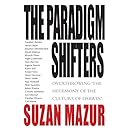At his blog Sandwalk, one of our favourite commenters, Larry Moran, who has wracked up a ton of loyalty points in terms of free ID literature, points out that various people have made a mistake in writing to Suzan Mazur, author of Paradigm Shifters, complaining about the Royal Society’s go-slow on the new reno (Darwin replacement).
It looks to me like the organizers of this meeting didn’t think very carefully about the can of worms they were opening. When you have speakers like Denis Noble and Jim Shapiro you are just inviting trouble. When you try to lecture Suzan Mazur about paradigm shifting you are bound to regret it.
I’m beginning to think this meeting isn’t going to happen. The Royal Society is going to end up looking very bad and there’s no easy way to fix the problem short of cancelling the meeting. More.
I (O’Leary for News ) am beginning to think that this meeting will happen with or without the Royal Society but that it will be better for the Royal Society to host it.
 Institutions get old and die. Is the Royal Society one of them?
Institutions get old and die. Is the Royal Society one of them?
See also: Royal Society says quit talking paradigm change Because they are in the midst of one. Hey, I just write the news around here, but all I ever say in these cases is, if nothing happened, why are all the Emergency Services here? Keep talking. Just keep talking. Distract yourself.
Larry Moran gets Suzan Mazur wrong (” When journalists who publish in key venues become interested in an otherwise obscure train wreck, we can reasonably suspect that a shift is taking place. That’ why we call it “news” and not “olds.””)
and
What the fossils told us in their own words
Follow UD News at Twitter!